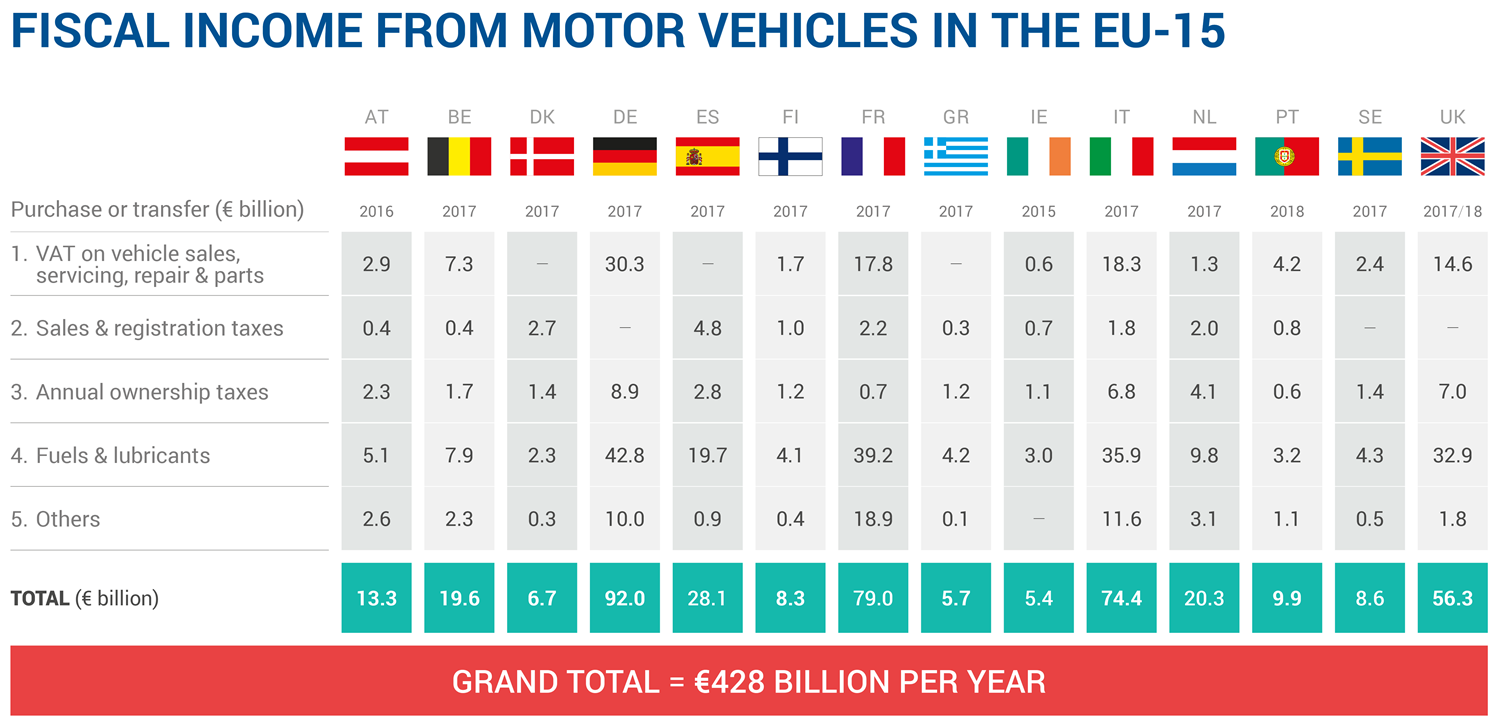Brussels, 24 April 2019 – New data released today shows that motor vehicle taxation brings in €428 billion per year to governments in the EU-15 countries alone. This figure – up 3.5% compared with the previous year – represents more than two and a half times the total EU budget.

The European Automobile Manufacturers’ Association (ACEA) published this data in the 2019 edition of its Tax Guide. This annual report contains the latest information about taxes on vehicle acquisition (VAT, sales tax, registration tax), vehicle ownership (annual circulation tax, road tax) and motoring (fuel tax) in the European Union and other key markets around the world.
The 2019 report shows major differences in tax levels across the EU. Regarding the basis of taxation, some member states still tax cars on their power, price, weight, cylinder capacity or a combination of these factors. Increasingly, however, countries are applying CO2-based taxation. According to the new Guide, 21 EU member states now tax motor vehicles based on their CO2 emission levels.
Incentives for electrically-chargeable cars are available in 24 out of the 28 EU states now, the ACEA Tax Guide shows, although the nature and monetary value of these benefits varies widely. Indeed, while most countries grant tax reductions or exemptions for electric cars, only 12 EU member states offer bonus payments or premiums to buyers of these vehicles.
“Tax measures are a crucial tool in shaping consumer demand for zero- and low-emission vehicles,” explained ACEA Secretary General, Erik Jonnaert. “Given that the affordability of electric cars is still a major barrier to their wider market uptake, Europe’s auto manufacturers strongly encourage the 28 national governments to put in place meaningful incentive schemes.”
***
Notes for editors
About ACEA
- ACEA represents the 15 major Europe-based car, van, truck and bus manufacturers: BMW Group, CNH Industrial, DAF Trucks, Daimler, Fiat Chrysler Automobiles, Ford of Europe, Honda Motor Europe, Hyundai Motor Europe, Jaguar Land Rover, PSA Group, Renault Group, Toyota Motor Europe, Volkswagen Group, Volvo Cars, and Volvo Group.
- More information can be found on www.acea.be or @ACEA_eu.
- Contact: Cara McLaughlin, Communications Director, cm@acea.be, +32 2 738 73 45 or +32 485 88 66 47.
About the EU automobile industry
- 13.3 million people – or 6.1% of the EU employed population – work directly and indirectly in the sector.
- The 3.4 million jobs in automotive manufacturing represent over 11% of total EU manufacturing employment.
- Motor vehicles account for some €428 billion in tax contributions in the EU15.
- The sector is also a key driver of knowledge and innovation, representing Europe’s largest private contributor to R&D, with €54 billion invested annually.
- The automobile industry generates a trade surplus of €90.3 billion for the EU.
